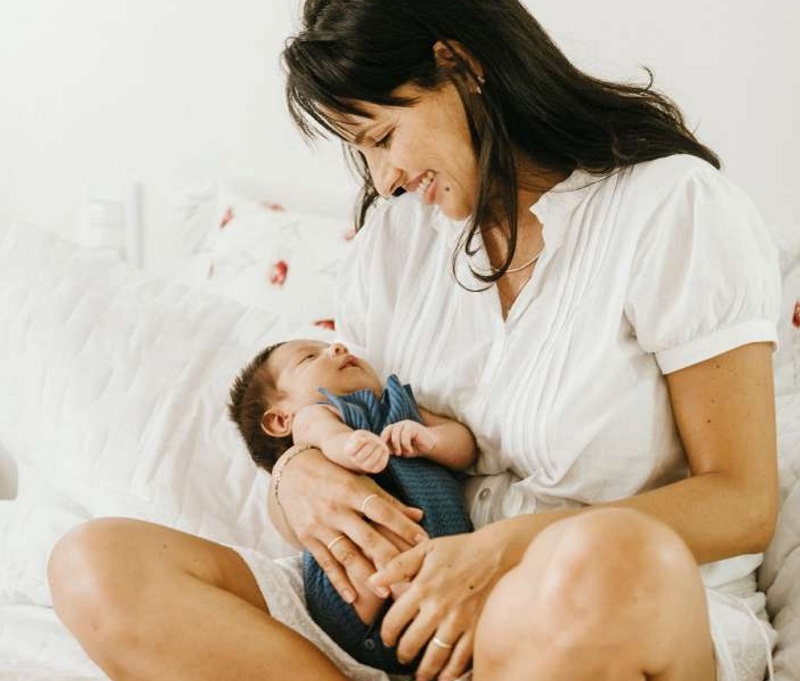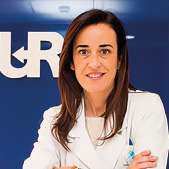How long should I wait?
When someone is diagnosed with cancer, it can be quite a blow, and there is a possibility they will not overcome the disease. Fortunately, however, life expectancy after cancer is increasing in young people as a result of scientific advances in cancer treatments.
The most common cancers in women of child-bearing age are breast and haematological cancers. The advances made in recent years in addressing and treating breast cancer have led eight of every 10 women now having overcome the disease five years after diagnosis. Consequently, the population of cancer survivors continues to increase. This situation – coupled with the fact that cases of breast cancer diagnoses in women under 45 years of age are also increasing as well as delayed motherhood – means that, while many young women may not have fulfilled their desire to be mothers when they receive their diagnosis, they may yet be able to consider the possibility of getting pregnant once they have overcome the illness.
Unfortunately, when they ask the oncologist about this, many patients don’t always receive the right information, which is sometimes radically contrary to the data provided by scientific evidence.
What scientific evidence do we have?
There are several retrospective studies that not only conclude that pregnancy after cancer does not worsen its prognosis, but rather – in some cases – improves it. The most generally accepted explanation is known as “healthy mother syndrome”, when means that patients who choose to become pregnant after a cancer diagnosis are the ones who inherently have a better prognosis and are in better health. In conclusion, with the scientific evidence available now in the 21st century, and that, for once, is absolutely unanimous, patients with breast cancer should be told that a subsequent pregnancy will not change their prognosis.
In general, the minimum waiting time recommended for getting pregnant depends on each patient’s risk of relapse and tumour type. It ranges from two to three years after diagnosis for women with negative hormonal receptors, and extends up to five years in women who have had a hormone-sensitive tumour. After treatment is stopped, the recommendation is to wait at least six months after the end of chemo/hormone therapy. Since we don’t have data on what waiting time is the safest, these periods are considered estimates. The possibility of delaying the time to get pregnant or not is a matter to be assessed with each patient.
Effects of cancer treatments on fertility
When women are informed of their cancer diagnosis, it’s important to take into account that, if they are considering motherhood, some cancer treatments (especially chemotherapy) can cause damage to their ovaries that may jeopardise their fertility and getting pregnant after the treatment.
The medications used during chemotherapy treatment don’t affect all women’s fertility the same way: the risk of amenorrhea and menopause in women with cancer is related to the type of treatment and, especially, their age.
Young women’s follicles are more resistant to chemotherapy and, in many cases, ovarian failure is reversible some six to 12 months after treatment. As a result, a woman’s ovarian failure after starting chemotherapy will be dependent on the number of follicles in the ovary when she begins treatment. If the number of remaining follicles is not high – or the drug’s toxicity is very high – it’s most likely that the ovarian failure will be permanent.
This is why every woman who is going to receive cancer treatments must be informed of their effects on her fertility, and she must be offered the opportunity to preserve it by the vitrification or freezing of the eggs. This way, she will be able to use them later once she is cured, if her ovarian functionhas been jeopardised. Even with all this information, fewer than 10% of women who survive breast cancer get pregnant. This may be due to the lack of information about this issue, or the fear it generates.
The most recommended fertility preservation techniques are the cryopreservation of eggs, semen and embryos. Other methods, such as the cryopreservation of ovarian cortex, are considered experimental. The technique that is most advisable and most used for women is the cryopreservation of eggs, since the cryopreservation of embryos requires a woman to have a partner or a donation of semen when she is diagnosed, as it can cause ethical problems about the decision about the future embryo. There are studies that say that only 25% of patients who choose cryopreservation of embryos access them within the following five years.
The cryopreservation of embryos and the cryopreservation of oocytes require prior ovarian stimulation. In other words, they require the administration of drugs with hormones that stimulate the ovaries to produce a number of eggs suitable for use in assisted reproductive techniques. This generates “fear” in patients and in oncologists because many breast cancers are hormone-dependent. However, nowadays we have medications that stimulate the ovaries while ensuring that blood oestrogen levels don’t increase excessively, thereby minimising risk.
Another fear was a delay in the cancer treatment due to carrying out the ovarian stimulation. Nevertheless, it has been scientifically proven that ovarian stimulation does not worsen the cancer’s prognosis, since we can do it at any time in the cycle and in just two to three weeks.
There are studies that back the safety of these techniques. Therefore – as we mentioned above – they must be offered to women of childbearing age diagnosed with cancer, and not just to offer them the opportunity to have a child, but also because of the positive psychological effect of your offering them something for the future may have, and that it means that we trust that she is going to be survive cancer.
- Increase in diagnoses cancer in women under 45 years of age, and the delay of motherhood
- Some cancer treatments can compromise fertility
The most recommended techniques are:
Preserve fertility by cryopreservation of eggs, semen or embryos
They require prior ovarian stimulation to produce a suitable number of oocytes
We have medications that stimulate the ovaries while ensuring that blood oestrogen levels don’t increase excessively, thereby minimising risk





